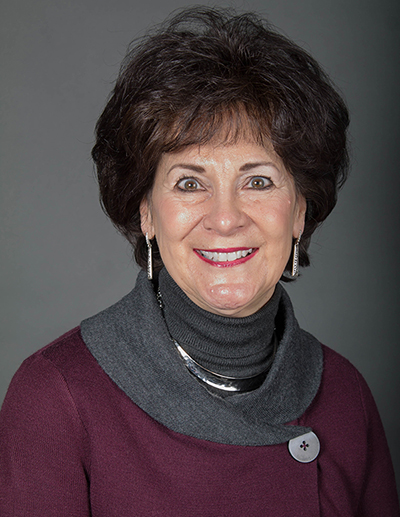Point Park University Education Expert Offers Tips for Parents Navigating K-12 Back to School Tuesday, August 11, 2020

“We know that parents and family are every child’s first teachers. The goal is always to have a partnership between parents, the school and the teachers, and now more than ever, we all need to share a common vision and work together for the child’s success."
Last March, when the COVID-19 pandemic forced students out of schools and back home, parents had to scramble to figure out how to finish out the school year online. Likely those same parents were sure the pandemic would pass and by the fall their children would return to school and things would go back to “normal.”
But that hasn’t happened. As coronavirus infection rates continue to climb in the Pittsburgh region, many parents are grappling with their school district’s back-to-school plans, hybrid, all-online or whatever the format, parents will be more involved perhaps than ever before in educating their children.
But as Linda B. Hippert, Ed.D., assistant professor in the School of Education at Point Park University, points out, this really isn’t new.
“We know that parents and family are every child’s first teachers. The goal is always to have a partnership between parents, the school and the teachers, and now more than ever, we all need to share a common vision and work together for the child’s success," Hippert says.
Whether students are enrolled in public, parochial or private schools, Hippert offers the following tips for parents to consider as their children head back to school this fall.
How you respond will reflect on how your child responds
“Change is difficult and when the change is accompanied by uncertainty, anxiety and even fear is common. Even when you may disagree with decisions being made in your schools, be positive with your child. Let them know that everyone is doing the best they can under the circumstances. Your response and behavior will be modeled by them."
Take full advantage of learning management tools
“Nearly all school districts will be incorporating online learning into their back-to-school plans for the fall. Platforms like Schoology, Canvas and Microsoft Teams, and others, help keep students and parents on track to understand lessons, organize assignments and monitor grades. Get to know your school district’s platform and it can be incredibly helpful in making at-home learning productive for your child.”
Consider a quarantine learning pod
Parents know that at-home learning is not the same as a classroom setting so some families are trying to mimic the classroom experience by creating learning or study pods with neighbors or a close group of friends.
“Families are finding ways to help their children learn and interact with others in a safe and socially-distant way.”
Hippert suggests parents reach out to their local colleges and universities with teaching programs to connect with upper-class students who are preparing to be teachers. "The college students get practical teaching experience, while K-12 students benefit from pedagogy that supplements their local school’s programs," she explains.
Find the helpers
As a parent, it is okay to feel stressed and frustrated. If parents are working full time, attempting to monitor children’s at-home study can be very challenging. “Don’t be afraid or embarrassed to ask for help," Hippert says.
Hippert encourages parents to reach out to their child’s teacher first. When the parent and teacher work together, the child understands there is a common concern for academic success. Teachers can provide parents with strategies that may be very helpful. The school counselor can also recommend other resources available to them. Local churches and community organizations often provide support.
“Don’t hesitate, don’t be afraid to ask," Hippert adds. "We all need help, reassurance and assistance during these difficult times. As a parent, sometimes you can’t do it all, even when you want to do so.”

